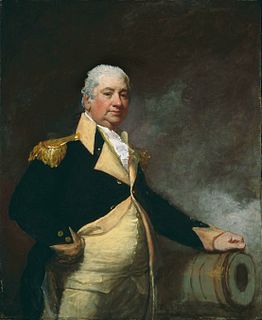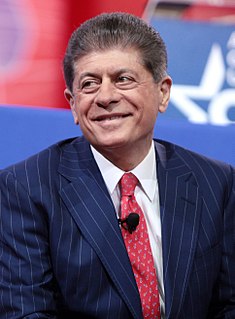A Quote by Thomas B. Macaulay
We must judge a government by its general tendencies and not by its happy accidents.
Quote Topics
Related Quotes
The people who started the American government, the founders of the Constitution, didn't like political parties but they were forced to start them. Nobody ever created political parties in England, they evolved. And there do tend to be two general tendencies that focus around how much government you think you need.
Ever judge of men by their professions. For though the bright moment of promising is but a moment, and cannot be prolonged, yet if sincere in its moment's extravagant goodness, why, trust it, and know the man by it, I say,- not by his performance; which is half the world's work, interfere as the world needs must with its accidents and circumstances: the profession was purely the man's own. I judge people by what they might be,- not are, nor will be.
Our children should learn the general framework of their government and then they should know where they come in contact with the government, where it touches their daily lives and where their influence is exerted on the government. It must not be a distant thing, someone else's business, but they must see how every cog in the wheel of a democracy is important and bears its share of responsibility for the smooth running of the entire machine.
For every crime that comes before him, a judge is required to complete a perfect syllogism in which the major premise must be the general law; the minor, the action that conforms or does not conform to the law; and the conclusion, acquittal or punishment. If the judge were constrained, or if he desired to frame even a single additional syllogism, the door would thereby be opened to uncertainty.
There's a theory of accidents that I studied when I was making a film about nuclear weapons: you can never eliminate accidents, because the measures you introduce to prevent accidents actually produce more accidents. That's certainly true of this sport; you're flying over 40 feet of what might look like snow, but it's hard as ice, it's as hard as pavement. You're doing acrobatic spins and tricks, 40 feet above pavement, essentially. There's been more accidents since, and there are going to continue to be more accidents, that's the nature of the sport.
The other General Welfare Clause is in the first of the authorities given to the Congress and it's not a grant, it's a restriction. By which I mean it doesn't say Congress can legislate for the general welfare, it means that everything Congress must do has to enhance the general welfare of the United States of America. It can't grant things to individuals, it can only legislate for the government.
































